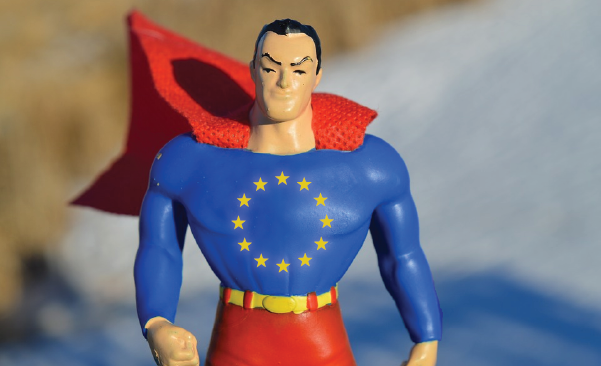Who let the Data out?
In the midst of the Facebook scandal, the EU can prove its worth

The British data analytics company “Cambridge Analytica” is at the center of the hurricane in the past few days of social media’s critical moment. Facebook’s darkest hour has come right on the issue everybody already perceived as its weakness: data protection. The whole point of Facebook’s business strategy is to gather our personal information and preferences and sell it to advertisers and as such, it’s crucial that they maintain the highest level of security around it.
So what is this company that is single-handedly putting a multi-billion dollar company at risk and is able to influence elections worldwide? It was founded in 2013 to focus on US elections thanks to the initial capital of Republican billionaire Robert Mercer, who invested 15 million dollars in the company. The name was chosen by former Trump’s aid Steven Bannon and from there it started to study and analyze consumer’s behaviors in order to produce a better advertisement content.
After Trump’s win in 2016, the company saw the beginning of its (short) golden age. The CEO Alexander Nix bragged to his clients about the company ability to influence and profile technique, vastly superior to traditional advertising. So what’s wrong with being good at analyzing data you ask? Well, turns out the method of acquiring the data was (allegedly) the one that tricked both the users and Facebook itself. This information was, in fact, taken thanks to an app developed by a young British mathematician, Aleksandr Kogan. By downloading the app and logging in with Facebook credentials, the application was able to extract all the information it needed from the user and from his friends.
After days of silence and plummeting stock options, Facebook CEO Mark Zuckerberg has come out and apologized for what happened. He told the press that they changed the security of their platform back in 2015 and that they had asked both Kogan and Cambridge Analytica to delete the information, which they say they did. Turns out this wasn’t true and Zuckerberg said they will do everything in their power so that something like this never happens again and that social networks will need more regulations from now on.
This last bit is particularly important because up until now Zuckerberg (and many other web giants) were wary of implementing new regulations and limit the freedom they (and in some sense we as consumers) enjoy at the moment. There were, to be fair, new guidelines being implemented to tackle disinformation and the so-called “hate speech”, but it seems now the Palo Alto company will move forward in a more direct and impacting way, probably to win back the trust to receive billions of people’s personal information.
 So who is better to tackle these issues than the world champion of regulations, the European Union? The EU is one of the safest and better-regulated (some would say too much) market blocks on the planet and, in fact, it was already on the move to solve the current imbalance between the consumer and the companies that gather our personal data. From May 25th of this year, thanks to the implementation of the EU regulation 2016/679 known as GDPR (General Data Protection Regulation), Brussels is facing the challenges of the digital age head-on. The new regulation will introduce new and clearer rules for consensus and information treatment, it will set limits to the use of automated processing of personal data, will regulate the transfer of this data outside of the EU and will set rigorous norms in case of data breach violations. Most importantly, the rules will apply to domestic and foreign companies alike, which offer services on the continent. Hefty fines await those who do not comply.
So who is better to tackle these issues than the world champion of regulations, the European Union? The EU is one of the safest and better-regulated (some would say too much) market blocks on the planet and, in fact, it was already on the move to solve the current imbalance between the consumer and the companies that gather our personal data. From May 25th of this year, thanks to the implementation of the EU regulation 2016/679 known as GDPR (General Data Protection Regulation), Brussels is facing the challenges of the digital age head-on. The new regulation will introduce new and clearer rules for consensus and information treatment, it will set limits to the use of automated processing of personal data, will regulate the transfer of this data outside of the EU and will set rigorous norms in case of data breach violations. Most importantly, the rules will apply to domestic and foreign companies alike, which offer services on the continent. Hefty fines await those who do not comply.
The new legislation couldn’t come at a better time. The scandal of Cambridge Analytica has exposed a flaw in the system, but these issues were on the rising for at least a decade. Privacy, the right to know who and how is using our personal information, a more clear approach to data sharing and in general the sense of impotence of the citizen compared to the giant corporations using and abusing these data are one huge part of what is fueling the backlash against the globalized world and, in turn, of the EU itself. If the Union will succeed in these endeavors, it will be double useful not only for our sacrosanct rights as consumers, but to also send a message to the citizens that the institutions are there to help us and protect us from the wild world out there, and that only a strong EU can succeed in doing so.
